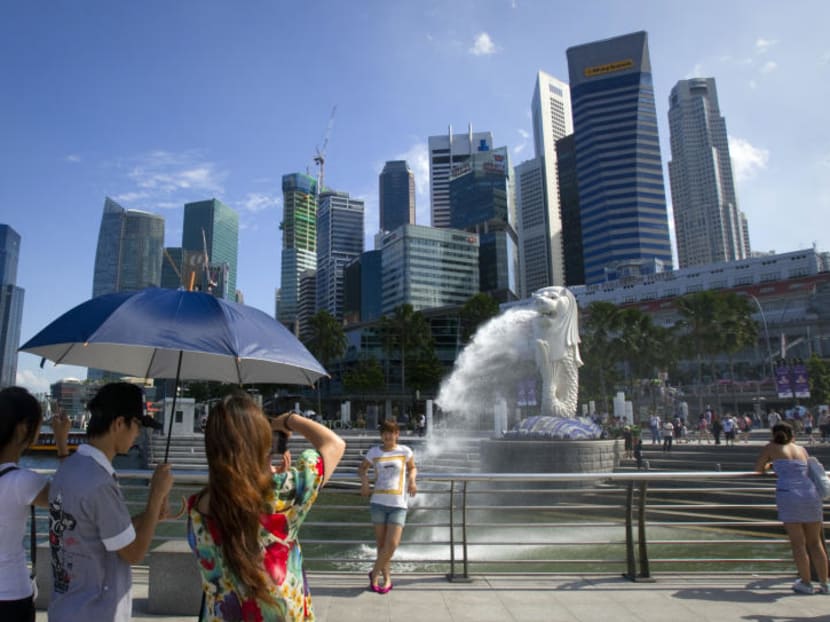Chinese tourists staying away from South-east Asia
BEIJING — China’s biggest online travel agency is offering a 30 per cent discount on trips to South-east Asia’s beaches and malls, but the Chinese are not buying it.

A tourist poses for a photo in front of the Merlion, a mascot of Singapore, and the financial district skyline in Singapore. Photo: Reuters
BEIJING — China’s biggest online travel agency is offering a 30 per cent discount on trips to South-east Asia’s beaches and malls, but the Chinese are not buying it.
“Singapore, Malaysia and Thailand are traditionally the favourite tourism route for the Chinese,” said Mr Jiang Haibin, public affairs manager at Ctrip.com. “This year, that route was affected a lot.”
Chinese travellers have been deterred by political violence and the mysterious disappearance almost six months ago of a Malaysia Airlines plane bound for Beijing. Territorial skirmishes with the Philippines and Vietnam have also hurt inter-government relations, while Singapore, a transit hub and stopover for those travelling around in the region, said arrivals from China dropped 30 per cent in the first six months of the year.
This dip threatens the tourism industry, which employs millions of people in South-east Asia and contributes billions of dollars to the region’s gross domestic product.
In Malaysia, tourist arrivals from China dropped 32 per cent in May from a year earlier. This decline followed the disappearance of Malaysia Airlines flight 370 on March 8, where almost two-thirds of those on board were from China. Bookings from China dropped almost 60 per cent after the loss of MH370, Malaysia Airlines said in May.
Vietnam, with which China had a cooling of ties after Beijing placed an oil rig off Vietnam’s coast in May, also welcomed fewer Chinese visitors. Their numbers dropped by 29 per cent in July, compared with a year ago, said the General Statistics Office in Hanoi.
Similarly, Chinese visitor arrivals to Thailand declined to 342,547 in July, a 25 per cent drop from a year earlier, data from the Ministry of Tourism and Sports showed. The decline in visitors since the army seized power in a coup on May 22 has been more severe in the capital, Bangkok. In the seven months ended July, the number of travellers from China visiting the Thai capital fell 35 per cent, compared with a 21 per cent drop nationwide.
But analysts believe Chinese tourists will not stay away forever. “The Malaysia Airlines air disasters and Thailand’s military coup are probably temporary factors that will dissipate over time,” said Mr Chua Hak Bin, an economist at Bank of America Merrill Lynch. “Longer-term, tourism (in South-east Asia) remains bright despite recent setbacks, boosted by affordable air travel, increasing connectivity, a growing middle class and a rising and more affluent China.”
For now, Indonesia may be an exception, where the beaches and culture of Bali are the most popular draw. The number of Chinese tourists visiting Indonesia rose 22 per cent in the first six months this year, said the country’s statistics office. BLOOMBERG





